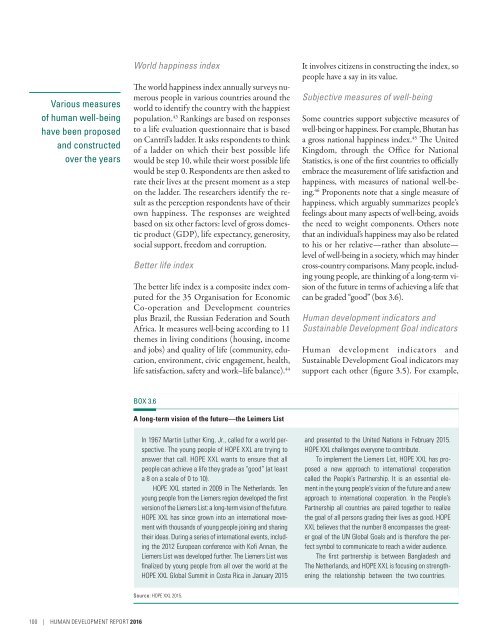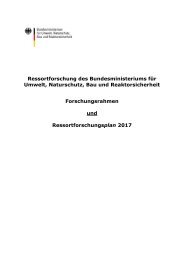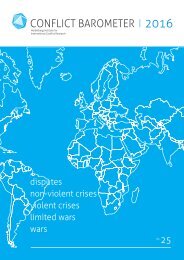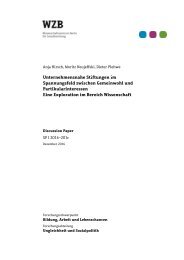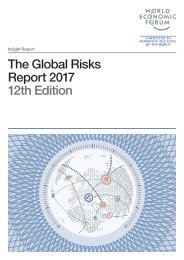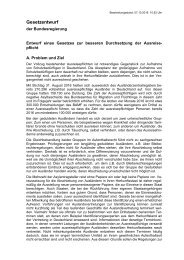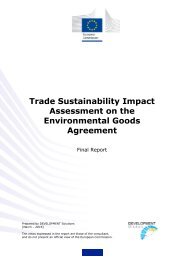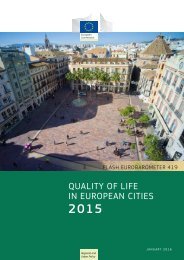Human Development Report 2016
6Tyccfrzw
6Tyccfrzw
You also want an ePaper? Increase the reach of your titles
YUMPU automatically turns print PDFs into web optimized ePapers that Google loves.
Various measures<br />
of human well-being<br />
have been proposed<br />
and constructed<br />
over the years<br />
World happiness index<br />
The world happiness index annually surveys numerous<br />
people in various countries around the<br />
world to identify the country with the happiest<br />
population. 43 Rankings are based on responses<br />
to a life evaluation questionnaire that is based<br />
on Cantril’s ladder. It asks respondents to think<br />
of a ladder on which their best possible life<br />
would be step 10, while their worst possible life<br />
would be step 0. Respondents are then asked to<br />
rate their lives at the present moment as a step<br />
on the ladder. The researchers identify the result<br />
as the perception respondents have of their<br />
own happiness. The responses are weighted<br />
based on six other factors: level of gross domestic<br />
product (GDP), life expectancy, generosity,<br />
social support, freedom and corruption.<br />
Better life index<br />
The better life index is a composite index computed<br />
for the 35 Organisation for Economic<br />
Co-operation and <strong>Development</strong> countries<br />
plus Brazil, the Russian Federation and South<br />
Africa. It measures well-being according to 11<br />
themes in living conditions (housing, income<br />
and jobs) and quality of life (community, education,<br />
environment, civic engagement, health,<br />
life satisfaction, safety and work–life balance). 44<br />
It involves citizens in constructing the index, so<br />
people have a say in its value.<br />
Subjective measures of well-being<br />
Some countries support subjective measures of<br />
well-being or happiness. For example, Bhutan has<br />
a gross national happiness index. 45 The United<br />
Kingdom, through the Office for National<br />
Statistics, is one of the first countries to officially<br />
embrace the measurement of life satisfaction and<br />
happiness, with measures of national well-being.<br />
46 Proponents note that a single measure of<br />
happiness, which arguably summarizes people’s<br />
feelings about many aspects of well-being, avoids<br />
the need to weight components. Others note<br />
that an individual’s happiness may also be related<br />
to his or her relative — rather than absolute —<br />
level of well-being in a society, which may hinder<br />
cross-country comparisons. Many people, including<br />
young people, are thinking of a long-term vision<br />
of the future in terms of achieving a life that<br />
can be graded “good” (box 3.6).<br />
<strong>Human</strong> development indicators and<br />
Sustainable <strong>Development</strong> Goal indicators<br />
<strong>Human</strong> development indicators and<br />
Sustainable <strong>Development</strong> Goal indicators may<br />
support each other (figure 3.5). For example,<br />
BOX 3.6<br />
A long-term vision of the future—the Leimers List<br />
In 1967 Martin Luther King, Jr., called for a world perspective.<br />
The young people of HOPE XXL are trying to<br />
answer that call. HOPE XXL wants to ensure that all<br />
people can achieve a life they grade as “good” (at least<br />
a 8 on a scale of 0 to 10).<br />
HOPE XXL started in 2009 in The Netherlands. Ten<br />
young people from the Liemers region developed the first<br />
version of the Liemers List: a long-term vision of the future.<br />
HOPE XXL has since grown into an international movement<br />
with thousands of young people joining and sharing<br />
their ideas. During a series of international events, including<br />
the 2012 European conference with Kofi Annan, the<br />
Liemers List was developed further. The Liemers List was<br />
finalized by young people from all over the world at the<br />
HOPE XXL Global Summit in Costa Rica in January 2015<br />
and presented to the United Nations in February 2015.<br />
HOPE XXL challenges everyone to contribute.<br />
To implement the Liemers List, HOPE XXL has proposed<br />
a new approach to international cooperation<br />
called the People’s Partnership. It is an essential element<br />
in the young people’s vision of the future and a new<br />
approach to international cooperation. In the People’s<br />
Partnership all countries are paired together to realize<br />
the goal of all persons grading their lives as good. HOPE<br />
XXL believes that the number 8 encompasses the greater<br />
goal of the UN Global Goals and is therefore the perfect<br />
symbol to communicate to reach a wider audience.<br />
The first partnership is between Bangladesh and<br />
The Netherlands, and HOPE XXL is focusing on strengthening<br />
the relationship between the two countries.<br />
Source: HOPE XXL 2015.<br />
100 | HUMAN DEVELOPMENT REPORT <strong>2016</strong>


